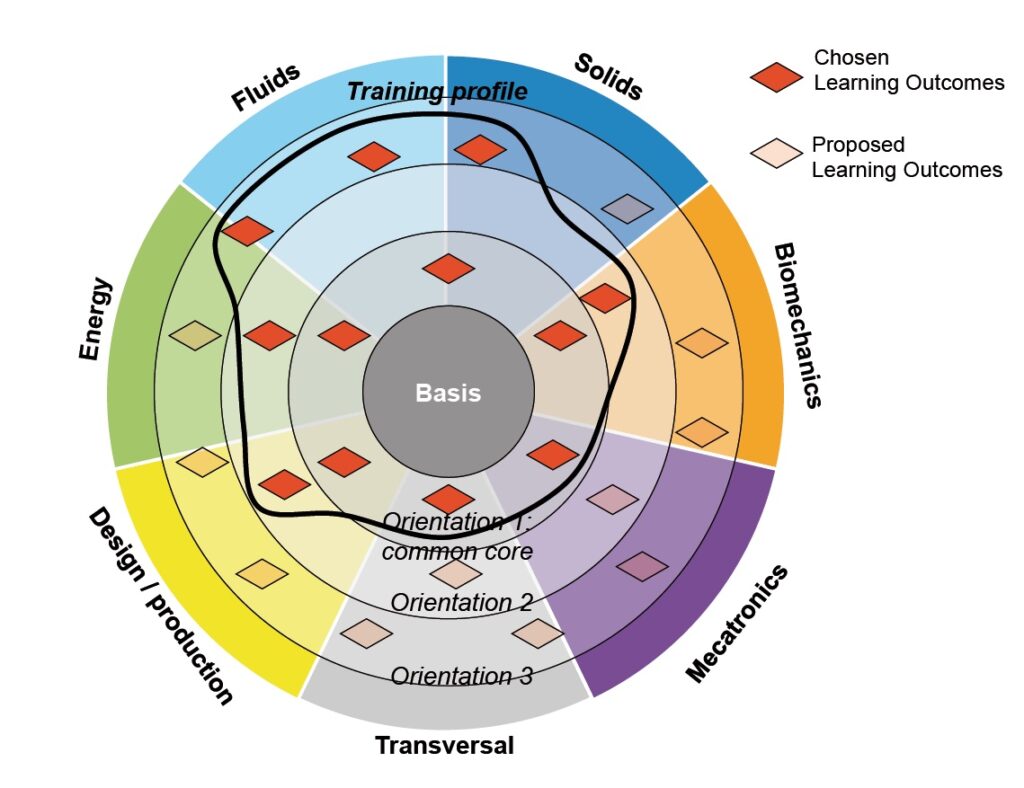Learning outcomes
What is a learning outcome?
A learning outcome is “a clear statement of what successful students will be able to do at the end of a course” 1.

Learning outcomes in mechanical engineering at EPFL
SGM was the first section at EPFL to adopt learning outcomes. Learning outcomes were identified and defined as a result of a 2-year (2009-2010) pilot project, partly supported by the Rectors’ Conference of the Swiss Universities (CRUS), that involved ME teachers, industrial partners and a team of pedagogists 2. The final output of the project consisted of seven lists of learning outcomes; one for each ME concentration and a list of transversal skills. Learning outcomes were first introduced in course descriptions in 2011-2012. In 2013-2014, with the introduction of learning outcomes for the whole EPFL, for the sake of uniformity, SGM decided to adopt the transversal learning outcomes defined at the School level instead of its own (the differences between the two sets were not essential).
Objective of the 2016 survey and its report
Download the report.
Curricula, especially in engineering, have to evolve by making room to up-to-date knowledge and technology and by abandoning content that is becoming obsolete. As a consequence, SGM teachers work to continuously improve the content of their courses and the respective learning outcomes. This work done within the walls of EPFL needs to be periodically assessed by external partners, who have direct experience of the quality of the education offered by SGM.
The introduction of mandatory internships in 2013/14 provided SGM with a valuable tool to obtain “quasi realtime” information about employer satisfaction, since it is reasonable to assume that the level of satisfaction in the case of an internship is representative of that of an actual job. Of the ME students who did internships over the last few years, the large majority were considered by their supervisors “excellent” or “good”.
Although interships are a valuable tool, in 2016, about six years after the end of the aforementioned pilot project, SGM teachers felt the need for a formal evaluation and validation of the learning outcomes offered in the Bachelor and Master programs, by means of survey addressed to industrial partners and alumni.
The results of the survey, summarized in this report, are being and will be used to improve the study plans to better prepare mechanical engineering students for today’s and tomorrow’s challenges.
1ˆ from the website of EPFL’s Teaching support centre (CAPE) http://cape.epfl.ch/faq-learning-outcomes
2ˆ Projet Compétences SGM – Rapport d’activité de la collaboration EPFL-UNIFR, mai 2009 – avril 2010
